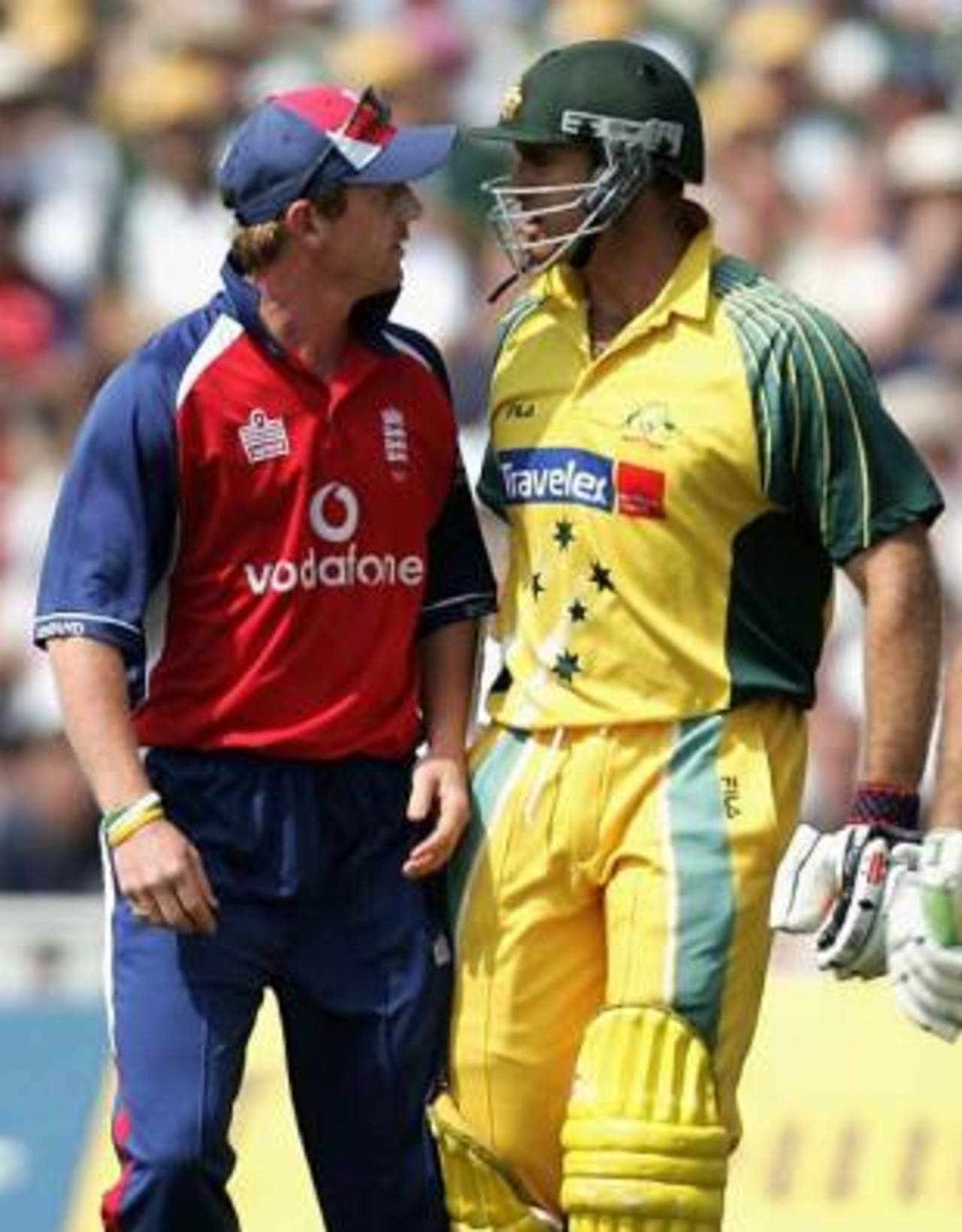The advent of sledging
Cricket's tag as a "gentleman's game" has taken a beating in modern times. Australia, and Allan Border can take some credit for that
28-Nov-2010

'You don't like my face? Well, I don't like your attitude" • Getty Images
1989
Cricket takes a long time and is often played in hot weather, and its legislation not only countenances but explicitly encourages a degree of aggression: unlike most games, one must seek an adjudication by appealing. No wonder tempers fray and terse words are exchanged.
In the modern game, however, what is euphemistically known as "sledging" is not said with a hot head but in cold blood. Australians have led the way in making verbal intimidation part of their psychological campaigns against opponents. Steve Waugh called it "mental disintegration".
Many fingers are pointed where sledging is concerned, and double standards exhibited. A salient distinction is between that arising in the normal course of play, and that introduced with premeditation. In practising the latter, Waugh drew on the example of his first captain, Allan Border. There had been sledging before Border, but probably not until the 1989 Ashes series had it been part of an articulated plan.
Ironically, Border was provoked by criticism that he was too soft, too friendly, towards English players. "This time I'll be tougher," he thought. David Gower, his counterpart, recalled the experience as unsettling: "He was mean to the opposition, the press, and indeed his own players. He sledged pretty fiercely, which is something that doesn't normally bother me… although on this tour it was hyper-unfriendly." As Border later confided to him: "I've been through all sorts of ups and downs with my team, but this time we had a bloody good chance to win. I was prepared to be as ruthless as I could be to stuff you up."
Australia won the Ashes 4-0, and did not surrender the Ashes till 2005. The association between success and snarling truculence was firmly embedded, to the extent that many teams other than Australia regard the latter as a precondition of the former. Mental disintegration? Or ethical?
This article was first published in Wisden Asia Cricket magazine in 2003